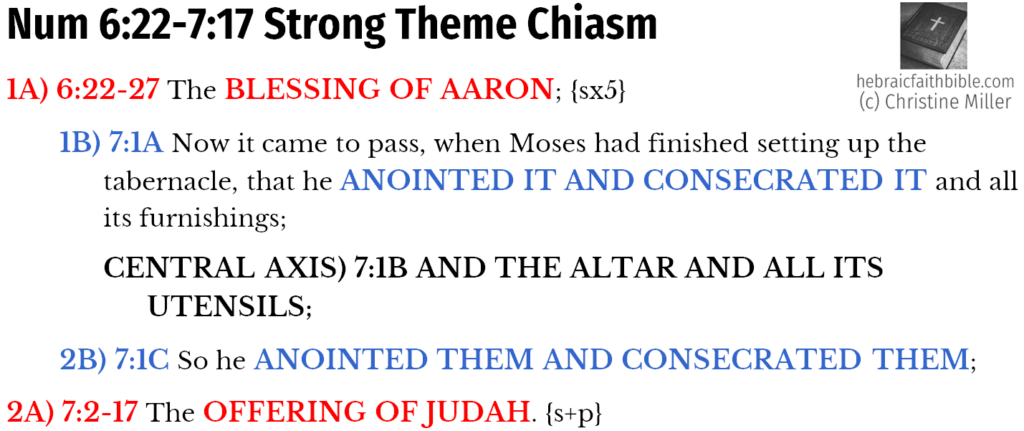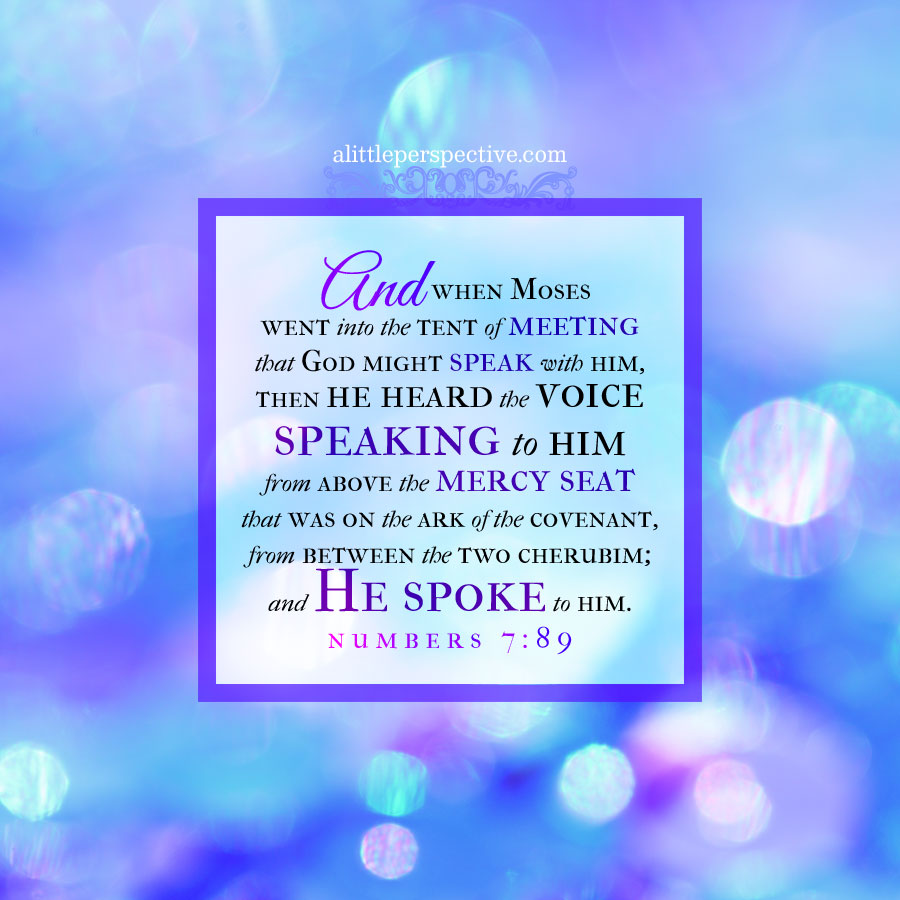Read Numbers 7 here (text coming …) or at Bible Gateway.
The Hebrew paragraphs:
7:1-11 {s} The leaders’ offering for the Levites / the dedication of the altar
7:12-17 {p} 1st day offering: Nahshon leader of Judah
7:18-23 {p} 2nd day offering: Nethanel leader of Issachar
7:24-29 {p} 3rd day offering: Eliab leader of Zebulun
7:30-35 {p} 4th day offering: Elizur leader of Reuben
7:36-41 {p} 5th day offering: Shelumiel leader of Simeon
7:42-47 {p} 6th day offering: Eliasaph leader of Gad
7:48-53 {p} 7th day offering: Elishamah leader of Ephraim
7:54-59 {p} 8th day offering: Gamaliel leader of Manasseh
7:60-65 {p} 9th day offering: Abidan leader of Benjamin
7:66-71 {p} 10th day offering: Ahiezer leader of Dan
7:72-77 {p} 11th day offering: Pagiel leader of Asher
7:78-83 {p} 12th day offering: Ahira leader of Naphtali
7:84-89 {p} Dedication offering for the altar / the voice of YHVH above the mercy seat
Num 6:22-7:17 makes one of the Strong Themes of Scripture with the following Chiastic Structure:

It seems a mishmash of events, but the Hebrew paragraph divisions reveal that God considers Num 6:22-7:17 a unified topic. The central portion, of which there can be no doubt, forces the A pair together, and each A pair, for a second testimony of accuracy, likewise forms their own structures. At first they do not seem to pair; however, this is the Messianic prophecy. Messiah is of the tribe of Judah, and of the house of David the king, but also serves as High Priest to God.
And being made, He [Yeshua] became the author of eternal salvation unto all who obey Him, called of God as High Priest after the order of Melchizedek. Heb 5:9-10
The order of Melchizedek is the order of the office of king and priest combined in one person.
And Melchizedek, king of Salem, brought out bread and wine; and he was the priest of Most High God. Gen 14:18
YHVH has sworn, and will not repent, “You are a priest for ever after the order of Melchizedek.” Psa 110:4
Psalm 110 is a Messianic psalm. Whenever an ordinary king of Israel or Judah tried to also serve in the office of priest, he was rejected (see 1 Sam 13:7-13, and 2 Chr 26:16-20).
It is because it is reserved for Messiah to serve in the office of both king, and priest, after the order of Melchizedek, that these kings were rejected. The A pair reveals the combination of both priest (1A, Aaron as the Prophetic Type) and king (2A, Judah, as the ruling tribe over Israel), thus, speaking prophetically of Messiah serving after the order of Melchizedek.
Now how do we know that we have analyzed the structure rightly, that it prophesies of Messiah after the order of Melchizedek? The central axis, the main point of the structure, is a sentence fragment: and the altar and all its utensils. Why is the altar the main point of the strong theme? The altar is where the sacrifice for sin was offered. And Messiah Yeshua is the eternal sacrifice for sin.
For such a High Priest was fitting for us, who is holy, harmless, undefiled, separate from sinners, and has become higher than the heavens; who does not need daily, as those high priests, to offer up sacrifices, first for His own sins and then for the people’s, for this He did once for all when He offered up Himself. Heb 7:26-27

















Leave a Reply